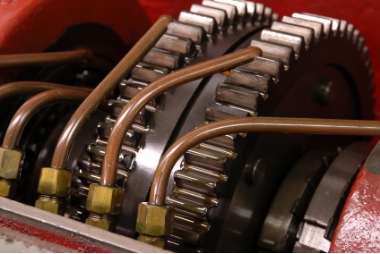Mechanical

A simple machine is a device that transforms the direction or magnitude of a force, without consuming any energy.
A mechanism is said to be pertaining to a machine, or to machinery or tools, if made or formed by a machine or with machine tools, Such as in mechanical precision engineering, firms who specialise in making mechanical products.
Mechanics is the branch of physics that predicts how physical bodies and mechanisms will behave when they're subjected to a forces. Also the subsequent effect(s) of the mechanism or body on their surrounding environment.
The Mechanics discipline is deep rooted in several ancient civilizations. Sometime ago, early on during the modern period, scientists of the day including the likes of Kepler, Galileo and particularly Newton. They laid down the foundations of what is known as today as classical mechanics.
Mechanised engineering, is and will continue to be an integral key role in the development, operation and manufacture of new machines and processes that help to benefit people the world over.
Engineers can't help but to use and apply their creative imaginations and developing professional skills combining both theory and practice to aid creation of new more advanced devices and processes. To be able to do this, they need a comprehensive and in-depth understanding of scientific and engineering processes.
This is crucial to meet the demands of developing solutions to real-life problems, despite conflicting requirements. Real world commercial engineers, although specialising in one discipline, have to develop and combine broad technical and management skills to hone and maintain their competitive advantage for themselves and the companies they work for.
have a look at Machine Shop Projects
No comments:
Post a Comment